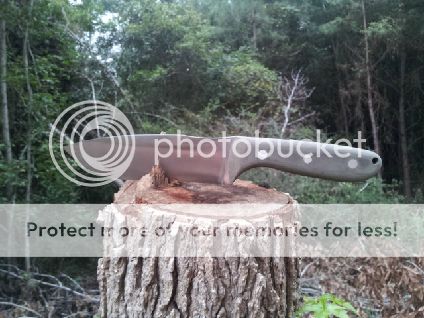- Joined
- Aug 30, 2008
- Messages
- 3,214
It may well be that we don't need more than a SAK or Gossman PSK.
Otzi the iceman had a tiny little 1.5" stone knife and he seemed to do fine in the Alps before he was killed. But then again, I've noticed my favorite kitchen knife is a 9" Gyuto (chef's knife). And that is in the comfort of my house. I have little paring knives, I just don't use 'em much. Big knives can just do more. Out on the trail or in the camp, I like a little SAK and a 4-5" knife. I have a couple of bigger knives that are nice to carry on short trips where weight isn't a big consideration. I've gone on multiday walks with just a SAK. It can be done.
Need is mighty relative.
I think it's fun to see how little a knife we can get by with: "OK, what can I do with an Xacto blade?" But why not plan for a little comfort? A stout folder like a Buck 110 or a fixed Bushcrafter is a really nice tool to have...anywhere.
Otzi the iceman had a tiny little 1.5" stone knife and he seemed to do fine in the Alps before he was killed. But then again, I've noticed my favorite kitchen knife is a 9" Gyuto (chef's knife). And that is in the comfort of my house. I have little paring knives, I just don't use 'em much. Big knives can just do more. Out on the trail or in the camp, I like a little SAK and a 4-5" knife. I have a couple of bigger knives that are nice to carry on short trips where weight isn't a big consideration. I've gone on multiday walks with just a SAK. It can be done.
Need is mighty relative.
I think it's fun to see how little a knife we can get by with: "OK, what can I do with an Xacto blade?" But why not plan for a little comfort? A stout folder like a Buck 110 or a fixed Bushcrafter is a really nice tool to have...anywhere.
Last edited:


